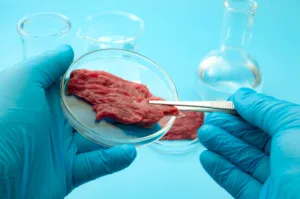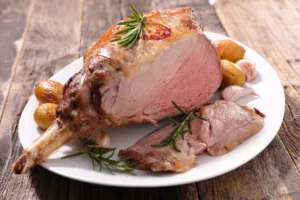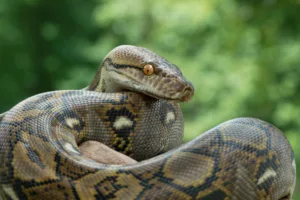How might the EU-NZ trade deal impact trade? – Sheep meat
The EU-NZ Free Trade Agreement (FTA) will enter into force on 1 May 2024. Trade of goods between the two countries was worth almost 9.1 billion euros in 2022. The agreement provides improved access into the EU market for New Zealand products.
Improved access for New Zealand goods includes:
- 91% of NZ goods trade will enter duty free from day 1. This will rise to 97% after 7 years
- NZ$100 million tariff savings from day one. This will rise to NZ$110 million after 7 years.
- Increased Tariff Rate Quotas (TRQs) for beef and dairy products.
Potential impact on the EU
The sheep meat quota in the New Zealand-EU free trade agreement (NZ-EU FTA) gives New Zealand further access to the EU market. It currently has access under the World Trade Organisation (WTO) quota, which is New Zealand-specific, of 125,770 tonnes. The EU-NZ FTA allows for a further 38,000 tonnes of tariff-free access after a seven-year transition period, which is split by fresh and frozen product. This allows for total tariff-free volumes of 164,000 tonnes per year (Jan-Dec), at the end of the transition period.
In comparison the UK-NZ FTA, which can only be filled when the WTO quota hits 90% fulfilment, allows for spare capacity without the FTA being enacted. The quota size is 35,000 tonnes from Year 1 (2024), increasing to 50,000 tonnes in years 5-15 after which it becomes fully liberalised. This means that the UK will be able to act if there is a higher-than-expected volume of New Zealand lamb imports under existing access.
The fresh-frozen quotas for NZ/EU are divided 35%:65%, which reflects the rough split seen in recent years trade data. These quotas are based on volume (tonnes) exported in carcase weight equivalent (cwe), with 4,433 tonnes of fresh sheep meat and 8,233 tonnes of frozen sheep meat allowed in Year 0 (pro-rata May-December). The first full year of the trade deal, from 2025, allows 5,911 tonnes of fresh, and 10,978 tonnes of frozen sheep meat to enter the EU.
Also:
NZ and EU trade agreement to take effect on May 1
French farmers up in arms over EU free-trade agreements
EU-NZ trade deal to make ‘an already bad situation worse’ for Irish sheep farmers
Sheep Meat Trade between the UK and Australia: Current State and Future Outlook


